I did not know I could become hugely invested in the deliberations of a church committee charged with recommending the next pastor for a Unitarian Universalist church in Southern California, but then I read Michelle Huneven’s Search, which will be released this coming Tuesday.
Search is told from the perspective of one of the committee members, Dana Potowski, a Los Angeles area food writer, memoirist, and one-time seminary student who, after many years, finds herself drifting away from the Arroyo Unitarian Universalist Community Church (AUUCC), and sees the committee as a chance to reengage, and perhaps put her stamp on the future of the AUUCC.
She also needs an angle for her next book and thinks a year-long process that brings people together for discussion and dining would be a good fit for a writer known for including recipes in the backs of her books.1
In my Chicago Tribune column this week I included Search as one of my “comfort food” reads, which I describe as books with “genuine and flawed characters who nonetheless try to be decent people, seeking connections to other decent people, with the unfortunate (but inevitable) thorniness of their humanity getting in the way.”
The sensation of reading these sorts of books is like, eating mom’s meatloaf, or mac and cheese, a feeling warmth and contentment.
(In addition to Search, I include Early Morning Riser by Katherine Heiny, Straight Man by Richard Russo, Plainsong by Kent Haruf, and Happy All the Time by Lori Colwin as other comfort reads.)
After writing the column, I’ve been thinking a lot more about the nature of the comfort read, how they work, what they do to the reader, how they’re viewed in the culture.
As Search headed towards its climactic moment, I felt myself becoming deeply invested in the committee making the “right” decision. My views of which decision was correct were of course significantly influenced by all of the events being conveyed through Dana’s perspective, but having spent so much time with her, I couldn’t help but identify with her concerns as she faced off against a younger faction of committee members.
Taking a step back for a moment, it is objectively a marvel that I could become that invested in the choice of a minister for a church in a congregation I do not belong to, in a place I don’t live, being made by people who are also - let’s not forget - fictional inventions of the author.
None of what I was reading was real. There were literally no real-world stakes to the story going one direction or another, and yet there I was, up past my bedtime to see how it was all going to turn out.
Even within the world of the novel, the stakes are objectively small. The fate of the world does not depend on which new minister joins a UU church. The characters in the book will not be terribly harmed one way or another no matter what choice is made.
It’s a novel about a committee, for crying out loud!
And yet, I cared, deeply. Couldn’t stop myself if I wanted to, and I didn’t want to. After finishing the book I found myself in a state of agitated excitement that sometimes accompanies the conclusion of reading a story that affected me in such a way. I tried to will myself to sleep, but instead found myself imagining being part of the committee, what I might’ve said had I been part of the decision.
Tell me there isn’t something amazing about that.
It is not entirely clear to me why I think of these books as “comfort reads” when they often leave me so agitated, and are more than willing to put the reader through the emotional wringer along the way. A comfort read has a natural ending, but that does not mean the ending is necessarily a happy one.
Staggerford by Jon Hassler, which I did not put in my column because it is difficult to find, ends in tragedy, and yet there is something comforting about the story it tells of a week in the life of Miles Pruitt, a burnt out small-town Minnesota high school teacher, despite the tragedy.
Or perhaps because of it? Here is where the nature of the Substack newsletter versus a more thought-out critical essay written over weeks (or months or years) rears up because I’m thinking out loud here, and the answer to my own question at this moment is “I don’t know.”
Hassler was a great Catholic novelist, and perhaps it isn’t an accident that both Search and Staggerford deal with questions of faith, belief, and community. That said, Unitarian Universalism is about as far from Catholicism as you can get, prescribing no formal liturgy, or even requiring members to evince a belief in a higher power. Atheists are welcome at the AUUCC.
And yet, both of the novels wrestle with notions of decency, humanity, of the grace we can choose or not choose to extend to our fellow humans, or even ourselves.
There is something amazing about that. The novels I think of as comfort reads are really just people trying to figure stuff out as best they can and live a decent life. These kinds of novels sometimes get short shrift, I think, being viewed as not as “important” as books that tackle ostensibly bigger subjects, and larger themes, but seriously, what’s bigger than this?
Not to crawl up my own behind too thoroughly here, but I tend to have an extremely dire view of humanity. In general, I think of us (collectively) as a pestilence put on Earth driven to exterminate each other and the planet itself. For evidence of the correctness of this view, I point you no further than the daily news.
Much of my own fiction is an attempt to find some measure of hope amidst this bleakness, to find and render moments of what I, as a nonbeliever, call “secular grace” where individuals transcend the awfulness that lurks inside all of us. Every story in my collection, Tough Day for the Army, involves putting some poor sucker through a darkly comedic wringer before offering them a bare glimmer of hope. I think the book has sold maybe 300 copies in total, but when the Publishers Weekly review said, “Warner successfully layers his satire with rich characters and a general playfulness with form that somehow renders a deep emotional resonance,” I thought, mission accomplished.
But quite honestly, I don’t attempt to execute that mission for the reader. I do it for myself. To cope with the emotional dissonance of the Trump years, I even started writing short stories told from the perspective of people who I thought were willing to tolerate evil. I suppose the goal was to see if I could find some measure of grace for them, to see if I could look closely at the monstrous without becoming a monster.
One story is told from the perspective of George Conway, famous never Trump conservative and husband to Kellyanne Conway, one of Donald Trump’s closest advisors. George’s dilemma in the story is the same as mine as the author, how can he love something he also loathes?
One of the revelations for Dana Potowski in Search is how much she cares about the outcome her committee is charged with producing, and it is this caring that makes the end of the book so thrilling.
I find it a constant temptation to give up on caring. I spend a lot of time advocating for more humane (and I would argue more effective) approaches to teaching and learning, particularly how we teach writing. I do my best to articulate a vision that recognizes both our individual and collective humanity, but as I reach the end of today’s musings and climb all the way back out of my own nether regions, I can say objectively that none of it makes a difference in the grand scheme of things.
The forces aligned against the attempts at humane behavior embodied in these books are simply too powerful to overcome. We are doomed, doomed, doomed.
Novels don’t change the world, but they are acts of defiance, of resistance.
As is reading, feeling that vicarious thrill of joining with the consciousness of another, something possible only through books.
What is there to do except keep trying?
Links
Over at Esquire, Maris Kreizman tells us “The 26 True Crime Books You Need to Read.” Also, Check out Maris’ great books podcast, The Maris Review.
Walton County Florida is moving toward banning 58 books from the public library, and the list is uhh…weird, ranging from Beloved by Toni Morrison, to Outlander by Diana Gabaldon to 50 Shades of Gray, and even The Purim Superhero by Elizabeth Kushner, a children’s book in which a child with two dads tries to figure out how to dress as a superhero for the purim celebration.
Someday I’ll figure out the process by which the New York Times decides to recommend new books, and how they settle on a number. This week it is 12.
The Times also has a series on bits of artists’ days, including features on Louise Erdrich going to her bookstore, and Samuel R. Delaney reading in his library.
Over at his newsletter, Counter Craft, Lincoln Michel gets exasperated debunking some mistaken notions about what it means when people say “show, don’t tell” in your writing.
ICYMI, I’ve rolled out a new recurring feature here at The Biblioracle Recommends, “Meet An Independent Publisher,” with a first installment featuring Hub City Press of Spartanburg, South Carolina. If you have an indie publisher you’d like to see profiled, email or let me know in the comments.
Recommendations
All books linked here are part of The Biblioracle Recommends bookshop at Bookshop.org. Affiliate income for purchases through the bookshop goes to Open Books in Chicago.
Burst through a logjam to see affiliate income increase to $90.20 for the year.2
1. The Stationery Shop by Marjan Kamali
2. The Starless Sea by Erin Morgenstern
3. The Midnight Library by Matt Haig
4. A Gentleman in Moscow by Amor Towles
5. The Vanishing Half by Brit Bennett
Rasa F. - Naperville, IL
Sticking with the comfort food books theme, I’m going to recommend another I could have put on my list, The End of Vandalism by Tom Drury.
Paid Subscription Update
I’m only going to do these once a month or so from now on as there’s less to report. We’re flat at $13,709 in annualized revenue, enough to make the current project and some once a month extras sustainable, so thanks to everyone who has subscribed. If you’ve enjoyed what you’ve read, please consider subscribing.
Thanks as always for reading to the bottom. I’ll see you all again next week. If you have a favorite comfort read, share it in the comments. I’m always looking for recommendations.
John
The Biblioracle
Search includes recipes of the meals the committee eats at their meetings, and the way Huneven (who I discovered after reading the book is a James Beard Award winner also), describes the food will make you envious of the characters who got to eat it.
I’ll match affiliate income up to 5% of annualized revenue for the newsletter, or $500, whichever is larger.




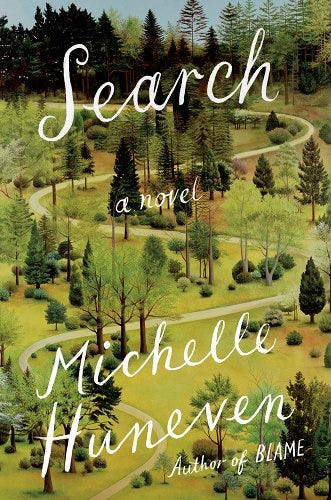
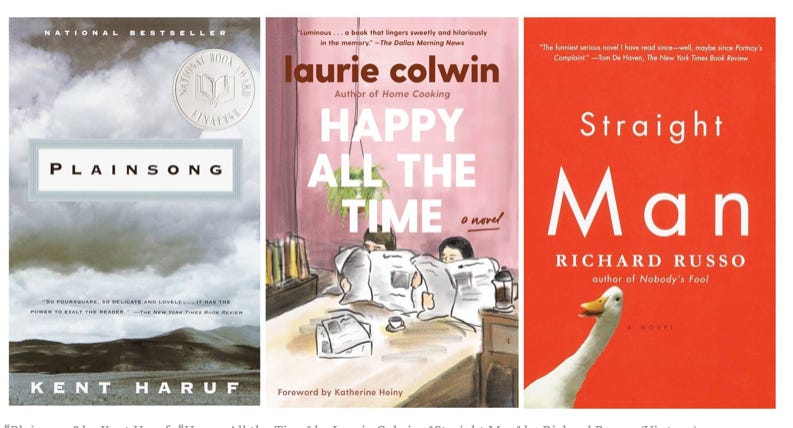
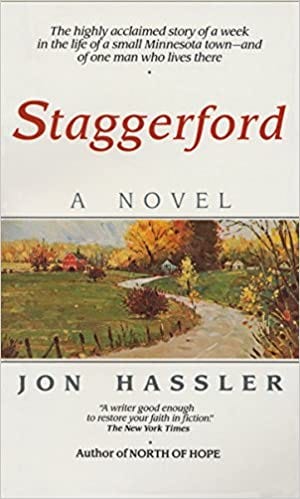
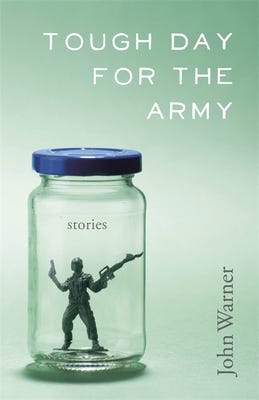
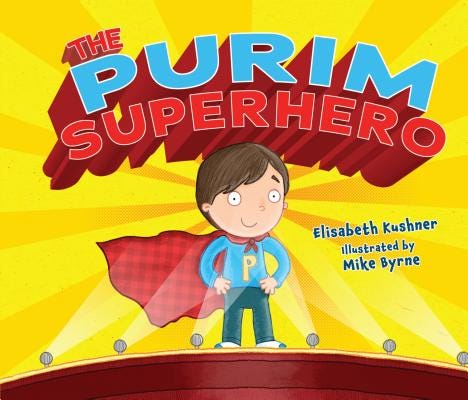
Thanks for this post, John. What you call "literary comfort food" I call "positively good reads" and "feel-good fiction with substance" on a website, positivelygoodreads.com, that I began nearly two decades ago when I was looking for such novels. It wasn't always easy to find them, so I thought it would help others with glass-half-full tendencies like me to have a list and a couple of paragraphs about each book. I add to the list whenever I read an appropriate book, and it now has scores if not hundreds of books. (I haven't counted.) It is always good to find other readers whose opinions I respect (i.e., you) who enjoy reading comforting books. I've received feedback that I'm just looking for escape, and that's a misunderstanding -- as you recognize.
I appreciate this post so much as well as the recommendation to read Search. I started reading it almost immediately. "I loved it" isn't a strong enough reaction. It is a wonderful comfort read but it also might be the closest protagonist to me and plot to my life that I've ever read and the author did it all very well. Like Dana, I'm a 54-year-old, married, child free woman who cares very much for her church (in this case, a large United Church of Christ congregation) and works hard for it. I have served on a search committee for an Associate Minister and five years ago, I joined the staff. I run a program for pastoral residents - new divinity school grads who serve in a supported "first-call" at our congregation for 27 months. I actually recruit from divinity schools and lead a search for a new resident every year.
Search gives me a character I can related to and Huneven also gets so many of the details and interactions of volunteer church life just right. I also cannot stand handbell choirs, so those passages made me laugh out loud. But nothing made me laugh harder than an interchange early in the book, though, when the committee is told one of their first tasks would be to interview the church's staff members and one of the committee members says, "staff?" Anyone working for a church who is not the Senior Minister has felt this invisibility! I haven't felt this delighted and surprised by a book in a long while.
I love your exploration of the temptation to give up caring but caring anyway. My education as a sociologist would make it very easy to see all of church life through that lens - the maneuvering and power plays to gain influence and social capital, but I try not to do that, or at least when I do I ask myself first if I'm not projecting my own motivations onto others. And that is one other thing I loved about Search. Toward the end, when Dana is going to lose, she is accused of being the incalcitrant one right after she has lodged that judgement at another committee member. To her credit, she doesn't dismiss it outright. She takes it in and leaves it there as a possibility.
A few of my own comfort reads that come to mind: The Piano Shop on the Left Bank by Thad Carhart (memoir) and the Starbridge series of novels (more church settings and religious themes) by Susan Howatch. My last unexpected delight would be The House in the Cerulean Sea. A strange little book that's hard to find but unique is Spark by Patricia Leavy. It's a fictional story that is also a textbook for the social sciences.